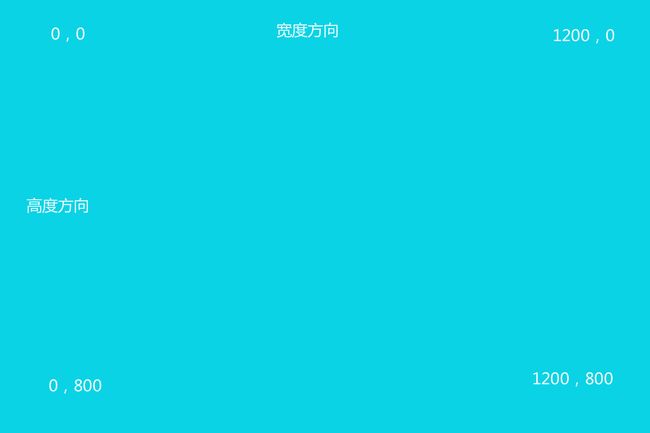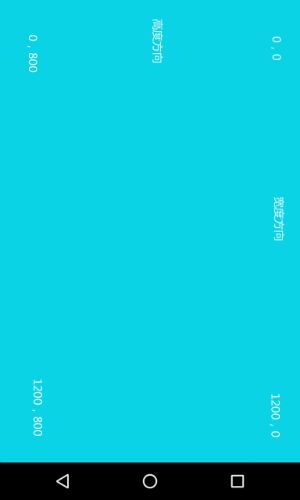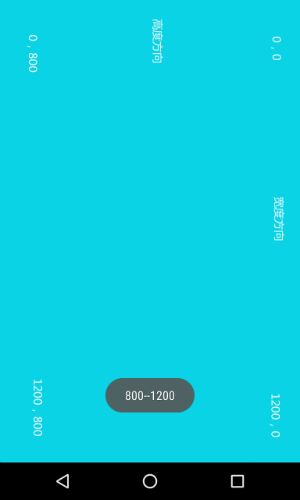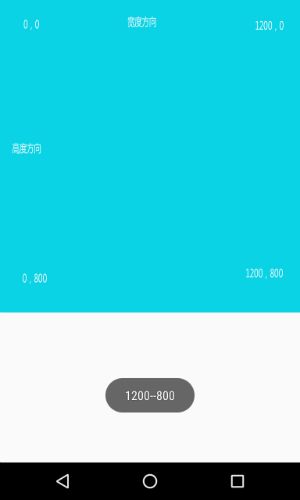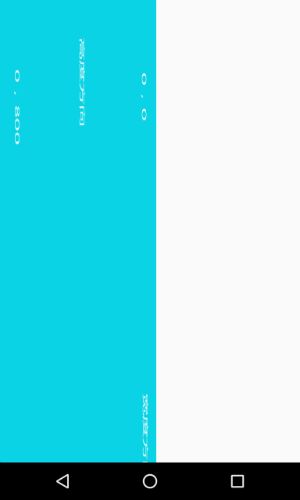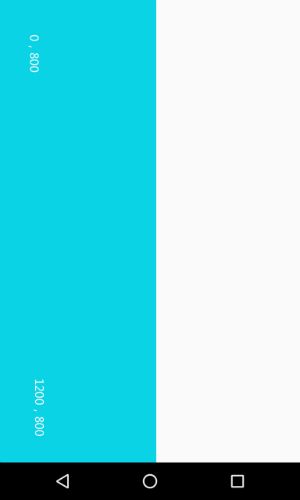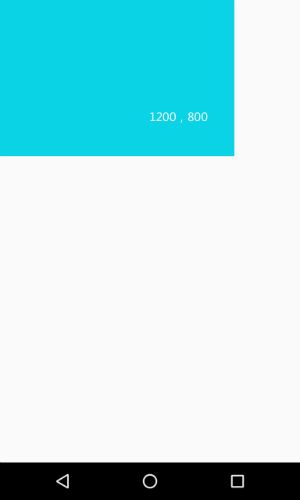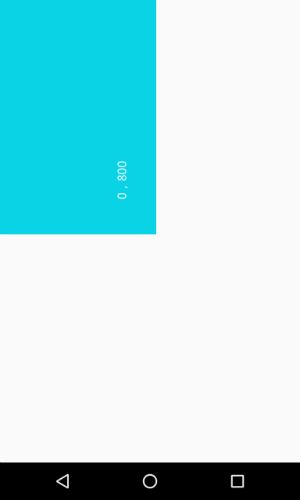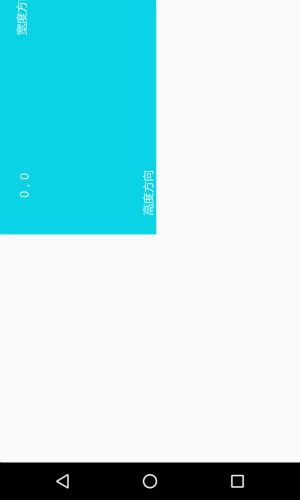Fresco 二三事:图片处理之旋转、缩放、裁剪切割图片
关于Fresco加载图片的处理,例如旋转、裁剪切割图片,在官方文档也都有提到,只是感觉写的不太详细,正好最近项目里有类似需求,所以分享一些使用小tip,后面的朋友就不用再走弯路浪费时间了。(测试图片分辨率1200*800)
原图:
旋转图片
/**
* 旋转图片
*
* @param rotate ,例如:RotationOptions.ROTATE_90
*/
private void rotate(SimpleDraweeView img, int rotate) {
RotationOptions rotationOptions = RotationOptions.forceRotation(rotate);
ImageRequest build = ImageRequestBuilder.newBuilderWithSource(getUriForFresco(this, R.mipmap.test_img))
.setRotationOptions(rotationOptions)
.build();
PipelineDraweeController controller = (PipelineDraweeController) Fresco.newDraweeControllerBuilder()
.setImageRequest(build)
.build();
mImageView.setController(controller);
}使用效果:
监听图片下载
首先构造监听器:
//监听图片下载进度,这里只重写了onFinalImageSet,当图片下载完成时获得图片宽高等信息
ControllerListener controllerListener = new BaseControllerListener() {
@Override
public void onFinalImageSet(String id, com.facebook.imagepipeline.image.ImageInfo imageInfo, Animatable animatable) {
int viewWidth = imageInfo.getWidth();
int viewHeight = imageInfo.getHeight();
Toast.makeText(MainActivity.this, viewWidth + "--" + viewHeight, Toast.LENGTH_SHORT).show();
}
}; /**
* 获得图片宽高
*
* @param controllerListener 图片下载监听器
*/
private void getImageInfo(ControllerListenersuper ImageInfo> controllerListener) {
PipelineDraweeController controller = (PipelineDraweeController) Fresco.newDraweeControllerBuilder()
.setControllerListener(controllerListener)
.setUri(getUriForFresco(this, R.mipmap.test_img))
.build();
mImageView.setController(controller);
}如果我想要1:1在手机端展示呢?
我首先想到的是1:1按照图片的尺寸设置SimpleDraweeView的宽高并设置缩放方式为fitXY,但是果不其然,view超出屏幕的部分是无效的。
裁剪切割图片
既然view超出屏幕无效,那就曲线救国,让图片超出屏幕部分不显示在view里就好了。
裁剪图片首先要写一个processor类:
/**
* 切割图片processor类
* 四个成员变量和createBitmap时的参数一致,即起点的X/Y坐标、要裁剪的宽高。因为项目里还涉及到缩放,所以我调整了下参数设成百分比方便换算
*/
public class CutProcess extends BasePostprocessor {
private float mBeginXPercent;
private float mBeginYPercent;
private float mCutWidthPercent;
private float mCutHeightPercent;
public CutProcess(float beginXPercent, float beginYPercent, float cutWidthPercent, float cutHeightPercent) {
this.mBeginXPercent = beginXPercent;
this.mBeginYPercent = beginYPercent;
this.mCutWidthPercent = cutWidthPercent;
this.mCutHeightPercent = cutHeightPercent;
}
@Override
public CloseableReference process(
Bitmap sourceBitmap,
PlatformBitmapFactory bitmapFactory) {
int viewWidth = sourceBitmap.getWidth();
int viewHeight = sourceBitmap.getHeight();
int beginx = (int) (mBeginXPercent * viewWidth);
int beginy = (int) (mBeginYPercent * viewHeight);
int width = (int) (mCutWidthPercent * viewWidth);
int height = (int) (mCutHeightPercent * viewHeight);
CloseableReference bitmapRef = bitmapFactory.createBitmap
(sourceBitmap, beginx, beginy, width, height);
return CloseableReference.cloneOrNull(bitmapRef);
}
} 然后在ImageRequest里setProcessor:
/**
* 裁剪图片
* @param processor
*/
private void cutPic(BasePostprocessor processor) {
ImageRequest build = ImageRequestBuilder.newBuilderWithSource(getUriForFresco(this, R.mipmap.test_img))
.setPostprocessor(processor)
.build();
PipelineDraweeController controller = (PipelineDraweeController) Fresco.newDraweeControllerBuilder()
.setImageRequest(build)
.build();
mImageView.setController(controller);
}调用方法:
mImageView.setLayoutParams(new RelativeLayout.LayoutParams(600, 400));
CutProcess cutProcess = new CutProcess(0, 0, 0.5f, 0.5f);
cutPic(cutProcess);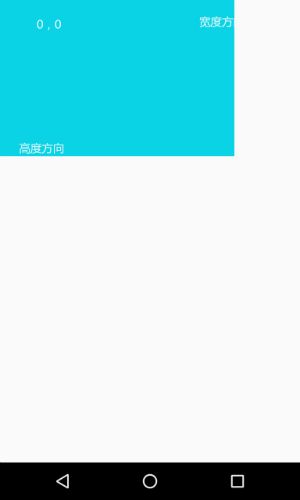
图片是1200*800的,这里设置view的宽高为600*400,可以看到图片成功裁剪只保留原图左上四分之一。通过设置view宽高,配合裁剪图片,即可达到1:1显示的效果。
旋转+裁剪
如果是要旋转90度后再裁剪呢?那还不简单,直接在裁剪的基础上,在ImageRequest里调用旋转方法不就好了。
/**
* 旋转+裁剪图片
* @param processor
*/
private void rotateAndcutPic(BasePostprocessor processor, int rotate) {
RotationOptions rotationOptions = RotationOptions.forceRotation(rotate);
ImageRequest build = ImageRequestBuilder.newBuilderWithSource(getUriForFresco(this, R.mipmap.test_img))
.setPostprocessor(processor)
.setRotationOptions(rotationOptions)
.build();
PipelineDraweeController controller = (PipelineDraweeController) Fresco.newDraweeControllerBuilder()
.setImageRequest(build)
.build();
mImageView.setController(controller);
}然后调用:
//例如我需要旋转90度且宽度不变,高度方向裁剪掉一半(即保留(0,0)-(1200,400))
mImageView.setLayoutParams(new RelativeLayout.LayoutParams(400, mScreenHeight));
CutProcess cutProcess = new CutProcess(0, 0, 1f, 0.5f);
rotateAndcutPic(cutProcess, RotationOptions.ROTATE_90);然而得到的并不是我们想要的
可以看到得到的是左半边(0,0)-(600,800)的图,即宽度方向被裁剪掉一般,高度方向不变,明明我在cutProcess里是设置宽度方向不变,高度方向裁剪50%,但是因为旋转了90度,结果却正好相反。难道是因为旋转90度后横纵方向也发生改变?那调换一下横纵方向的切割比例试试看:
CutProcess cutProcess = new CutProcess(0, 0, 0.5f, 1f);
rotateAndcutPic(cutProcess, RotationOptions.ROTATE_90);可以看到,调换横纵切割比例后,却得到的是下半边(0,400)-(1200,800)。还是不正确,难道是原点也改变了?再测试一下,如果要裁剪后保留右下四分之一(600,400)-(1200,800)区域,正常无旋转的情况下是这样的:
mImageView.setLayoutParams(new RelativeLayout.LayoutParams(600, 400));
CutProcess cutProcess = new CutProcess(0.5f, 0.5f, 0.5f, 0.5f);
rotateAndcutPic(cutProcess, RotationOptions.NO_ROTATION);但如果旋转270度后,同样代码得到的结果却是这样的:
看到这里我们就清楚了,旋转图片后,其实(0,0)点,也就是所谓的原点也随之变换。默认情况下,原点是(0,0),顺时针旋转90度后,原点就变成了(0,800),以此类推旋转180度原点为(1200,800),旋转270度原点为(1200,0)(和旋转后的图片的左上角相对应)。虽然是在构建ImageRequest时同时传入旋转和裁剪参数的,但实际上可以看作是先完成了旋转,然后在旋转后的基础上,以屏幕的左上角为原点,左上角往右为x正方向,左上角往下为y正方向。
小试牛刀一下,旋转270度后,想要裁剪后只保留原图的左上四分之一(0,0)-(600,600),那推测就应该是(0, 0.5f, 0.5f, 0.5f)。
mImageView.setLayoutParams(new RelativeLayout.LayoutParams(400, 600));
CutProcess cutProcess = new CutProcess(0, 0.5f, 0.5f, 0.5f);
rotateAndcutPic(cutProcess, RotationOptions.ROTATE_270);Bingo!推测正确。
旋转+裁剪就是这个原点的变换要注意下。另外看代码里的几个方法,裁剪、旋转、获得宽高等,有没有觉得老是要重复写PipelineDraweeController、ImageRequest的代码好麻烦啊。其实裁剪、旋转等方法无非也就是添加一个参数,类似这种可变参数的复杂类的构造可以使用Builder模式封装一下。封装代码就不贴在这里了。demo下载地址
//Builder模式封装后
new FrescoBuilder(mImageView, getUriForFresco(this, R.mipmap.test_img))
.cutPic(0f, 0.5f, 0.5f, 0.5f) //裁剪
.setRotate(RotationOptions.ROTATE_270) //旋转
.setControllerListener(controllerListener) //设置监听
.build();使用Matrix实现
继承SimpleDraweeView自定义控件,使用Matrix实现旋转缩放:
public class MyFresco extends SimpleDraweeView {
private Matrix mMatrix;
private float mScaleX = 1f;
private float mScaleY = 1f;
private int mViewWidth = -1;
private int mViewHeight = -1;
private RectF mDisplayRect = new RectF();
private int mDegree = -1;
public MyFresco(Context context, GenericDraweeHierarchy hierarchy) {
super(context, hierarchy);
init();
}
public MyFresco(Context context) {
super(context);
init();
}
public MyFresco(Context context, AttributeSet attrs) {
super(context, attrs);
init();
}
public void setViewInfo(int width, int Height) {
mViewWidth = width;
mViewHeight = Height;
}
private void init() {
mMatrix = new Matrix();
mMatrix.postScale(mScaleX, mScaleY);
}
/**
* 缩放
* @param scaleX 缩放倍数
*/
public void setScale(float scaleX, float scaleY) {
mScaleX = scaleX;
mScaleY = scaleY;
mMatrix.postScale(scaleX, scaleY);
invalidate();
}
/**
* 旋转
* @param degree 角度
*/
public void rotate(int degree) {
if (mDegree == -1) {
mDegree = degree;
if (mDegree != 0) {
mMatrix.postRotate(degree);
invalidate();
if (mDegree == 90) {
//旋转后图片超出边界,所以要再做平移
mMatrix.postTranslate(getRectWidth(), 0);
} else if (mDegree == 180) {
mMatrix.postTranslate(getRectWidth(), getRectHieght());
} else if (mDegree == 270) {
mMatrix.postTranslate(0, getRectHieght());
}
}
} else {
mDegree += degree;
mMatrix.postRotate(degree); //getRectWidth是旋转后的width
invalidate();
mMatrix.postTranslate(getRectWidth(), 0);
}
invalidate();
}
/**
* 还原设置
*/
public void reset() {
mScaleX = 1f;
mScaleY = 1f;
mMatrix = new Matrix();
mMatrix.setScale(mScaleX, mScaleY);
mViewWidth = -1;
mViewHeight = -1;
mDegree = -1;
}
/**
* 获得旋转后超出边界的高度
* @return
*/
public float getRectHieght() {
RectF displayRect = getDisplayRect(mMatrix);
if (displayRect != null) {
return displayRect.height();
} else {
return -1;
}
}
/**
* 获得旋转后超出边界的宽度
* @return
*/
public float getRectWidth() {
RectF displayRect = getDisplayRect(mMatrix);
if (displayRect != null) {
return displayRect.width();
} else {
return -1;
}
}
private RectF getDisplayRect(Matrix matrix) {
if (mViewWidth == -1 || mViewHeight == -1) {
return null;
}
mDisplayRect.set(0.0F, 0.0F, mViewWidth, mViewHeight);
getHierarchy().getActualImageBounds(mDisplayRect);
//将matrix映射到rectf
matrix.mapRect(mDisplayRect);
return mDisplayRect;
}
@Override
protected void onDraw(Canvas canvas) {
int save = canvas.save();
canvas.concat(mMatrix);
super.onDraw(canvas);
canvas.restoreToCount(save);
}
}
就是酱~
